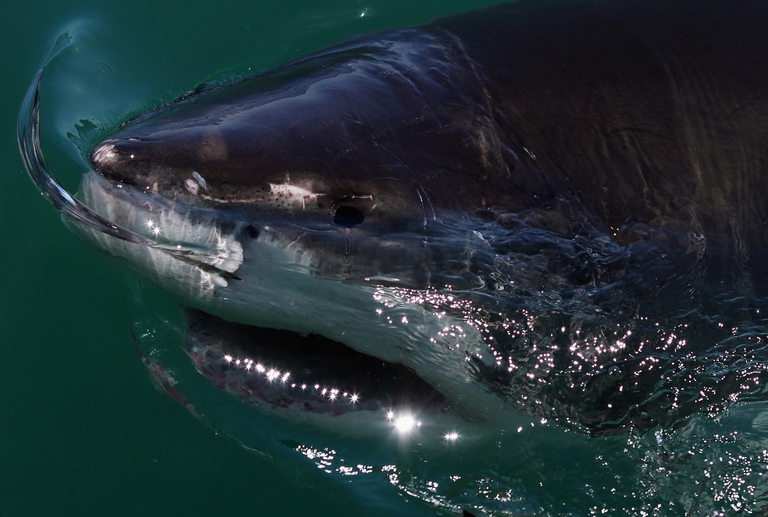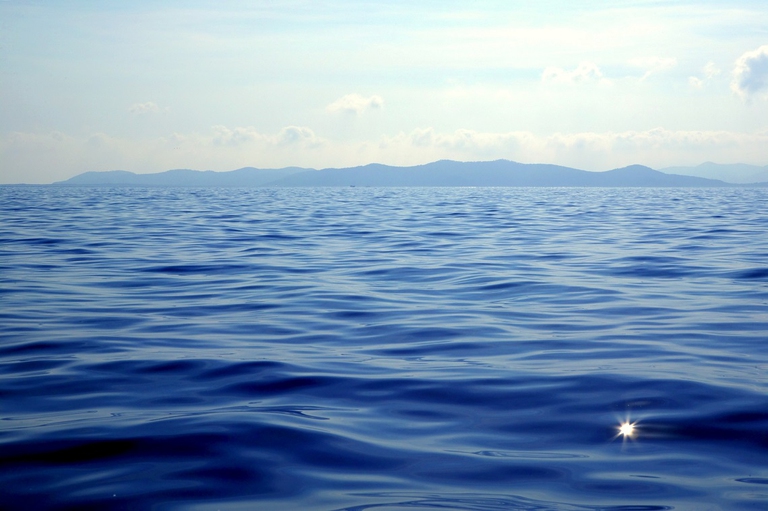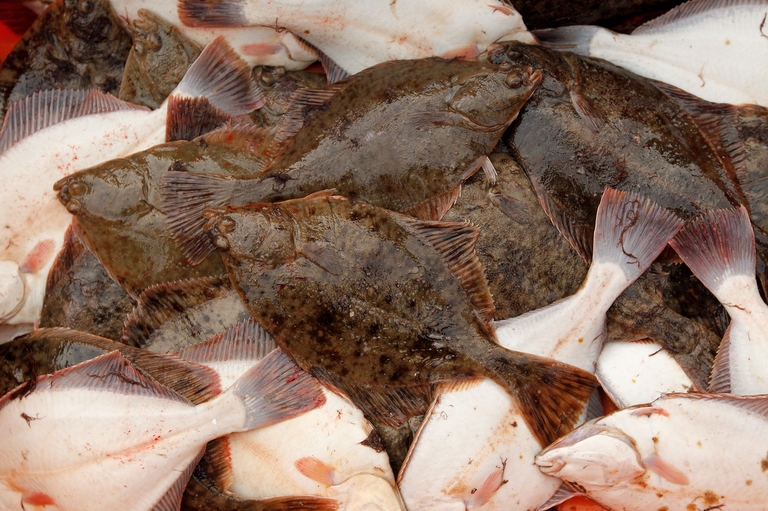
Our species took its first steps in a world covered in trees. Today, forests offer us sustenance, shelter, and clean the air that we breathe.
Great white shark numbers in the Mediterranean Sea have declined rapidly, a new study highlights. The predator’s disappearance would have a significant impact on the entire ecosystem.
Apex predator populations are diminishing throughout the world, as many such species face the threat of extinction. Their loss is capable of triggering a severe chain of events affecting entire ecosystems. This is true for land predators such as lions and tigers, as well as marine hunters like sharks. For example, the greatest of all sea predators, the great white shark (Carcharodon carcharias), also known simply as white shark, risks disappearing entirely from the Mediterranean Basin.
Read more: Animal and plant species declared extinct between 2010 and 2019, the full list
The drop in the white shark population was revealed by Abundance and distribution of the white shark in the Mediterranean Sea, a study conducted by a group of researchers from La Sapienza University in Rome, Italy in cooperation with Stanford University and the University of Virginia, both in the US. The research was supported by the Institute for Marine Biological and Biotechnological Resources (IRBIM) of the Italian National Research Council (CNR), the Anton Dohrn Zoological Station, a research institute in the Italian city of Naples, and the Italian National Institute For Environmental Protection and Research (ISPRA). For the first time ever, scientists estimated the white shark’s presence in the area over the last 160 years.
Read more: Shark hotspots are being overtaken by industrial fisheries, leaving the animals little refuge
Great white sharks are renowned for their huge size, which may lead us to think that these creatures exist only the vast expanses of the ocean. It may therefore come as a surprise that the CNR’s research reveals that they’ve inhabited the Mediterranean Sea for centuries, a claim backed by recorded sightings dating back as far as Medieval times.
Despite the species’ classification as “critically endangered” by the International Union for Conservation of Nature (IUCN), an effective conservation programme can’t be undertaken in the absence of information regarding its status in this area. In response to this, the study seeks to collect a wide range of data to construct a bigger picture of the white shark’s habitat as well as its population density and fluctuations in numbers.
Researchers collected 773 observations documenting the presence of white sharks. Ranging from 1860 to 2016, the data was utilised to develop spatial and temporal models on shark populations. The results suggest a “complex trajectory of population change characterised by a historical increase and a more recent reduction since the second half of the 20th century”.
The decline of white shark populations has been more prominent in some areas. “The decrease wasn’t homogenous throughout the Mediterranean Basin,” Giovanna Jona Lasinio, associate professor in La Sapienza’s Department of Statistical Science, explains. “For instance, in central Mediterranean sectors, a 52 per cent decrease was observed, whereas in the Marmara Sea the decrease was 96 per cent. Moreover, the reduction often comes with a decrease of spatial distribution, data often linked to endangered populations”.
The great white shark is an apex predator, which means that it’s at the top of the food chain and doesn’t have any natural predators: its extinction would affect the food chain significantly. For example, it would cause an increase in its prey. “It has been demonstrated that removal of the apex predator from marine ecosystems leads to disastrous cascading effects on the whole trophic chain – in the words of Stefano Moro, from La Sapienza’s Environmental Biology Department –. From this point of view, the Mediterranean Sea represents a negative first place on a global scale, recording more than 50 per cent of shark species classified as ‘threatened’ by the IUCN on a regional level”.
We still don’t fully comprehend what the consequences of diminishing shark populations are. One thing, certainly, is that human impact has played a major role in falling numbers, as these animals tend to be the unfortunate victims of bycatch along with direct fishing and anthropic activities in coastal areas. 47 different shark species inhabit the Mediterranean, 20 of which are top predators, and they’re not only decreasing in numbers but also in size. Among them are great white sharks, frail shadow of the monsters who once terrorised the seas, but who now belong mostly to myths and tales of the past.
Siamo anche su WhatsApp. Segui il canale ufficiale LifeGate per restare aggiornata, aggiornato sulle ultime notizie e sulle nostre attività.
![]()
Quest'opera è distribuita con Licenza Creative Commons Attribuzione - Non commerciale - Non opere derivate 4.0 Internazionale.
Our species took its first steps in a world covered in trees. Today, forests offer us sustenance, shelter, and clean the air that we breathe.
Poachers in Africa are encroaching on wildlife land and killing rhinos in travel hot spots now devoid of visitors due to the coronavirus pandemic.
Actor and environmental activist Leonardo DiCaprio has contributed two million dollars to a fund to protect Virunga National Park in Congo from threats such as terrorism, the coronavirus and poaching.
For the first time in seventeen years, Iceland’s two main whaling companies won’t resume whale hunting. The announcement concerns this year’s season but could carry into the future.
The relationship between the coronavirus and wildlife is complex: while the pandemic may lead to a reduction in the illegal trade in wild animals, it may also encourage it in other respects.
The largest coral reef in the world is severely threatened by climate change, but researchers are developing strategies that could contribute to saving the Great Barrier Reef.
NGO Free the Bears has opened a mountain sanctuary for moon bears in Laos. With the government’s help, it aims to close all bile farms by 2022.
Seychelles have extended its marine protected area, which now covers over 400,000 square kilometres, an area larger than Germany.
The tapir was reintroduced into Brazil’s Atlantic Forest, the country’s most at-risk ecosystem. The species can play a key role in the forest’s recovery.










